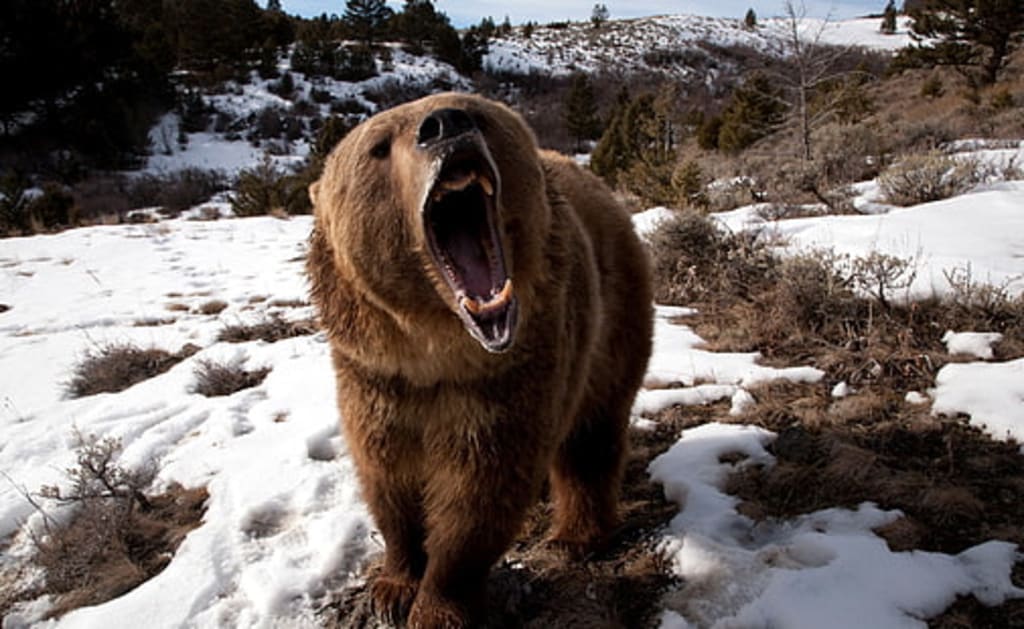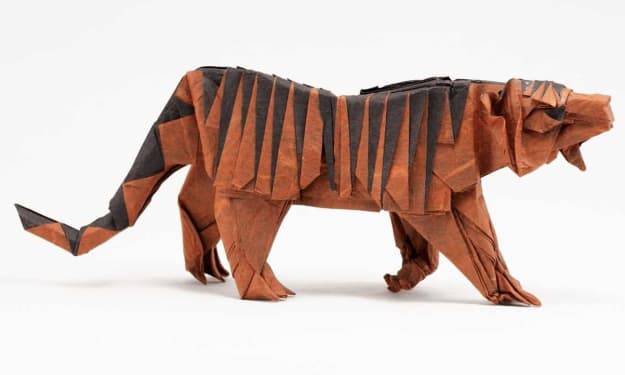The Essential Point of Me vs. Animals: How it Breaks the Typical Essay Format
MAJOR SPOILERS FOR BENJAMIN PERCY'S ME VS. ANIMALS

On the surface, Benjamin Percy’s “Me vs. Animals” feels more like a collection of eight short pieces rather than a complete essay. It tells eight separate occurrences throughout Benjamin’s life of his encounters with various animals, from moose to mice to rattlesnakes. Each of these stories is engaging on its own merit, with writing that is stylized in a way that sounds like Benjamin’s speaking style. However, by the end of the piece, it becomes unavoidably clear that this collection of stories works best when read all at once as an essay, as it threads together a narrative that demonstrates that man is much more dangerous than any animal ever could be.
Throughout the essay, we hear stories of Benjamin having to defend himself from wildlife. In order to defend himself from a rattlesnake, a rancher walking with him on a desert trail baits the snake to bite a stake he pulled out of the ground, after which Benjamin “grabbed a shovel and brought it down on the snake’s head and cut it clean off.” In a sudden encounter with a moose, Benjamin decides to throw a rock at it in order to throw it off, after which it “went crashing down the hill, its long legs scissoring.” Finally, after discovering a deer caught in barbed wire near their house, Benjamin’s father tells him that he should kill it “as if killing were driving a stick-shift or installing a light fixture.” In these instances and all of the others described in this story, Benjamin describes ways in which he defended himself from animals or simply avoided them.
However, the final passage of the essay tells more in a single night. Benjamin recalls that in a conversation with a friend about what animals they would be willing to fight one-on-one in a cage, he tried “to look beyond a mirror and envision a cage, an animal panting and snarling in its far corner -- but I could only see myself.” In this one line, the entire message of the essay is revealed. The reader realizes that in every single story that has been told previously, all of his interactions with animals were quick, in-the-moment decisions that resulted in more harm towards the animals than of Benjamin himself. This demonstrates how, in his eyes, man is truly the most harmful creature on earth because in their own instincts for survival, they can become just as, if not even more animalistic, than the creatures they are surrounded by. There was almost never any true danger towards Benjamin in these stories, but in all of the stories, he acts in rage, in fever, in simple in-the-moment decisions to try and defend himself from potential harm. He acted on instinct, and the tone of his essay implies that he recognizes with so many other humans acting on instinct against animals in their own lives, it’s a wonder that we haven’t completely rid the planet of them by now.
This message is executed subtly but with intention, weaved throughout these seemingly inconsequential series of stories in a way that doesn’t truly connect with the reader until the very end. The reader is engaged by the very frank style of writing that Benjamin presents, and the stories are interesting in their own right, thus keeping the reader engaged until that final punch in the gut realization that we humans aren’t all that different from the instincts of animals after all. It’s the life story of a man who has spent the majority of his life learning how dangerous he and other humans can be, even in their most well-intentioned moments, and it’s a message and a final line that sticks with the reader well after they’ve put the essay down.





Comments
There are no comments for this story
Be the first to respond and start the conversation.